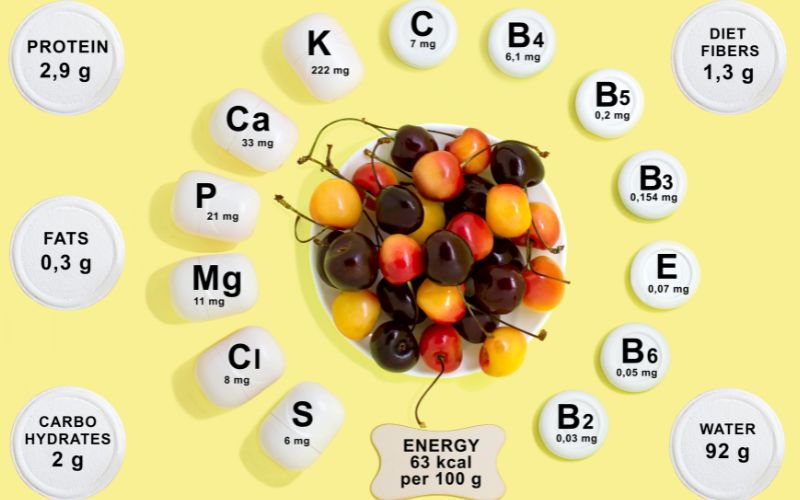
Differences Between Mineral Blends and Vitamins Explained
More people today recognize the importance of a balanced and healthy diet. One important part of staying healthy is understanding how nutrients like vitamins and minerals benefit our bodies. Vitamins and minerals are essential for good health but have different roles. With the rise in popularity of supplements and mineral blends, it is important to know the difference between these two types of nutrients. This blog will explain the differences between mineral blends and vitamins, their roles in the body, and how to make sure you get the right amount.

What Are Minerals?
Minerals are abiotic compounds that naturally occur in the Earth's crust and are required for many bodily processes. While vitamins are obtained from living organisms, minerals are not but are obtained from soil and water. The body needs minerals to help build bones and teeth, support muscle function, and conduct nerve impulses. There are 2 types of minerals: macrominerals and trace minerals. Macrominerals, like calcium, magnesium, and potassium, are needed in larger amounts. These minerals maintain fluid balance, bones, and normal muscle and nerve function.
Trace minerals, such as iron, zinc, and copper, are required in much smaller amounts but are equally important in helping to support growth, immune function, and cell processes.
What Are Vitamins?
Vitamins are important natural substances that the body needs in small amounts to function properly. They are grouped into two main categories based on how they dissolve: fat-soluble vitamins and water-soluble vitamins.
Fat-soluble vitamins (A, D, E, and K) are stored in the body’s fatty tissue and liver. These vitamins are absorbed more efficiently when consumed with fat, and because they are stored in the body, deficiencies are less common compared to water-soluble vitamins.
Water-soluble vitamins (such as B vitamins and vitamin C) are not stored in the body and must be replenished regularly through diet or supplements. If excess amounts are consumed, they are absorbed into the bloodstream and excreted through urine.
Vitamin C helps your body make collagen and supports your immune system. Vitamin D is important for strong bones and helps your body absorb calcium.
Key Differences Between Mineral Blends And Vitamins
While minerals and vitamins are essential to your overall health, they differ in several ways, including their chemical nature, body function, and sources. Let’s take a closer look at these differences.
1. Chemical Composition
One of the primary differences between minerals and vitamins is their chemical composition. Vitamins are pure compounds, meaning they are derived from living organisms (plants or animals), while minerals are non living, meaning they are not derived from living things. Minerals are simple, non-carbon-based substances that retain their chemical structure even when exposed to heat or light, which is not always true for vitamins.
2. Role in the Body
Minerals and vitamins perform various functions in the body, though some of them are similar. Minerals are involved in structural functions, such as the development of strong bones and teeth (calcium) and the maintenance of crucial processes, such as the contraction of muscles (magnesium), the transmission of nerves (potassium), and the transport of oxygen (iron). Trace minerals such as zinc and copper are involved in crucial functions in enzymes that catalyze biochemical reactions in the body.
Vitamins, however, have a larger role in metabolic and regulatory functions. Vitamin B12, for instance, helps in the generation of energy and assists in the development of red blood cells. In contrast, vitamin C is crucial in developing collagen, wound healing, and the immune system. Vitamins are the main regulators of body functions that enable the body to function optimally.
3. Sources
Minerals and vitamins are obtained from food sources. Minerals are found in various foods, such as meat, milk products, fruits, vegetables, grains, and seafood. Others may also need to take mineral blends, especially if they have certain deficiencies or need the support of certain functions, such as bone development or muscle function.
Vitamins, similarly, are found in many foods. For instance, vitamin C is found in many citrus fruits and vegetables like peppers and broccoli. Vitamin D, however, is obtained through sunlight exposure or foods like fortified milk and fatty fish. Since the body does not store water-soluble vitamins, one should take them regularly.
Although minerals and vitamins can be obtained from foods, most people use supplements like mineral blends or multivitamins to meet their nutritional needs, especially if their diet lacks certain vitamins or minerals.
4. Absorption and Storage
The body absorbs vitamins and minerals in different ways. Water-soluble vitamins, like vitamins C and B, are absorbed directly into the bloodstream and do not remain in the body for long. The body excretes any excess through urine, so it is important to consume these vitamins daily.
Fat-soluble vitamins, such as A, D, E, and K, are stored in the body’s fatty tissue and liver. They are unnecessary daily, and the body can tap into its reserves when necessary.
Conversely, minerals are absorbed through the gastrointestinal tract, and various factors, including the presence of other nutrients or compounds, influence their absorption. For example, vitamin D can enhance calcium absorption, and calcium levels can affect magnesium levels in the body.
5. Deficiency Symptoms
Both vitamin and mineral deficiencies can lead to a variety of health problems. A vitamin deficiency may cause symptoms like fatigue, skin problems, weakened immunity, or poor bone health, depending on the vitamin lacking. For instance, a deficiency in vitamin D can lead to bone discomfort like rickets, while a lack of vitamin C can result in scurvy.
Similarly, a mineral deficiency can lead to distinct symptoms. Iron deficiency can cause anemia, characterized by fatigue and weakness, while magnesium deficiency can cause muscle cramps, fatigue, and even arrhythmias. In many cases, a mineral blend supplement can help restore levels of specific minerals, especially in individuals with an imbalance.
6. Supplementation
Many people take supplements to ensure they get enough vitamins and minerals, especially when their diet may not provide sufficient amounts. Mineral blends are supplements that combine several essential minerals into one product to support different bodily functions, such as muscle health, energy production, or bone density.
Similarly, multivitamins offer a combination of essential vitamins in one pill, making it easier for individuals to fill any nutritional gaps. However, it is necessary to consult a healthcare provider before starting any supplementation regimen, as overconsumption of either minerals or vitamins can lead to toxicity and adverse health effects.
Conclusion
While mineral blends and vitamins are vital for overall health, they differ in chemical composition, functions, absorption, and storage. Minerals are non-biological and are critical in maintaining structure and supporting physiological processes like muscle function and nerve transmission. Conversely, vitamins are natural compounds that help regulate metabolic processes and ensure the smooth functioning of the body’s systems.
FAQs on Mineral Blends and Vitamins
How do vitamins and minerals differ in their functions?
Vitamins are biological compounds that help regulate metabolic processes and maintain overall body function, such as energy production and immune support. Minerals, on the other hand, are elemental substances that are vital for structural functions, like building strong bones and supporting muscle and nerve activity.
Can I get all my vitamins and minerals from food alone?
While a balanced diet rich in fruits, vegetables, whole grains, and lean proteins can provide most of the vitamins and minerals your body needs, some individuals may have deficiencies due to dietary restrictions, health conditions, or lifestyle factors.
